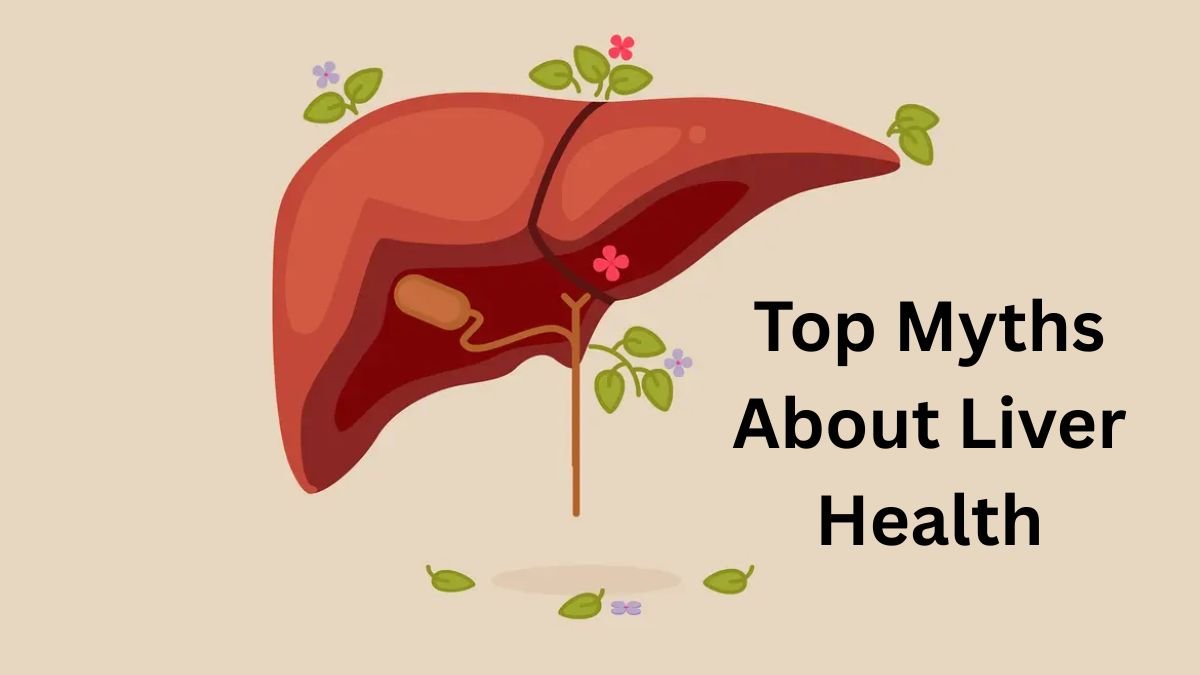The liver is a vital organ in our body, performing various functions ranging from digestion to energy storage and the elimination of toxins. However, there are many myths (misconceptions) related to liver health that people often believe to be true. Because of these myths, people often fail to seek proper treatment or unknowingly adopt lifestyles that harm their liver.
In this article, we will examine common liver health myths and the facts behind them so you can better protect your liver.
Myth 1: Alcohol damages the liver
Truth: Most people believe that alcohol alone damages the liver. However, it is true that excessive alcohol consumption can lead to serious liver diseases like cirrhosis and fatty liver. But alcohol is not the only culprit.
There are other causes of liver damage:
- Eating too much oily and junk food
- Obesity and diabetes
- Viral infections like hepatitis B and C
- Long-term medication misuse
- Therefore, it is important to consider other causes, not just alcohol.
Myth 2: Herbal supplements and home remedies are always good for the liver
Truth: Many people believe that natural herbs or home remedies are harmless. But this is not entirely true.
Sometimes, the use of herbal medicines or untested remedies can put pressure on the liver. For example, excessive use of Kavasava or Chapri herbs has been linked to liver damage.
Therefore, it is important to consult a doctor before using any supplement or herbal remedy.
Myth 3: If there’s a liver problem, symptoms will appear immediately.
Fact: The liver is an organ that functions silently for a long time and often doesn’t show any early symptoms, even when disease is present. This is why it’s called the “silent organ.”
Early symptoms of liver problems can be very mild:
- Fatigue
- Loss of appetite
- Mild abdominal bloating
- Yellowing of the skin or eyes (jaundice)
- Most people ignore these symptoms, which can lead to serious complications.
Myth 4: Only obese people have fatty liver.
Fact: Fatty liver is often associated with obesity, but it’s not necessarily limited to obese individuals.
Many people with normal weight can also develop fatty liver. This condition is called lean fatty liver and is often caused by poor diet, alcohol consumption, genetic factors, or hormonal imbalances.
Therefore, getting your liver checked is important for everyone, whether overweight or thin.
Myth 5: Detox drinks completely cleanse the liver
Truth: These days, various detox drinks and juices are sold in the market, which people believe will completely cleanse the liver.
In fact, the liver itself is the body’s largest detox organ. Its function is to filter toxins and eliminate them from the body.
Detox drinks can temporarily aid digestion and hydration, but they cannot cure liver disease. Proper diet, exercise, and medical treatment are required.
Myth 6: Liver disease means life is over
Truth: Liver disease doesn’t mean everything is over. If the problem is detected early, it is possible to control and treat it.
- Treatment and lifestyle changes can improve liver health.
- Eating a balanced diet
- Regular exercise
- Avoid alcohol and smoking
- Taking medications as advised by your doctor
- Many people live normal lives even after a liver transplant.
The right steps to maintain liver health
- Eat a balanced diet rich in fruits, vegetables, and fiber.
- Avoid junk food and excessive oil.
- Get regular health checkups and liver function tests.
- Avoid alcohol and drugs.
- Get vaccinated against hepatitis B.
- Use herbal or Ayurvedic medicines judiciously.
Conclusion
Liver myths often mislead people. The assumption that alcohol alone damages the liver, or that detox drinks will fix everything, is incorrect. The reality is that the liver is directly affected by our lifestyle, eating habits, and health choices.
Therefore, it is important that we have correct information about liver health, get regular checkups done and do not ignore any problem.
